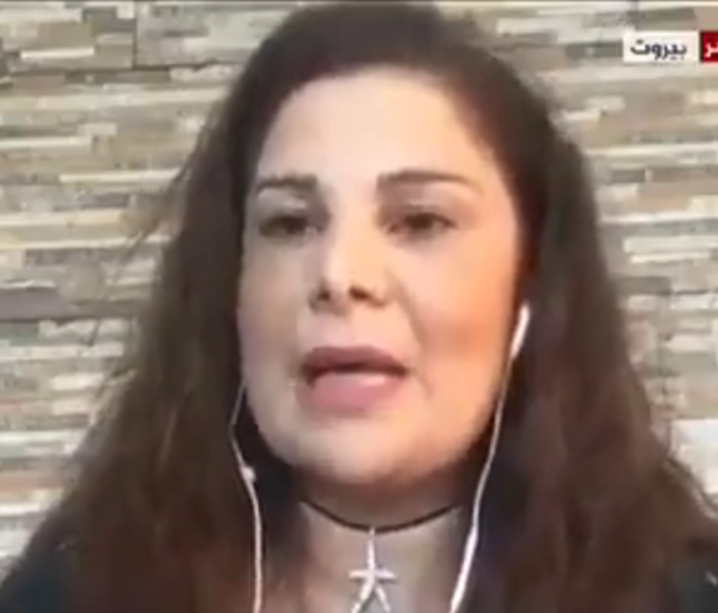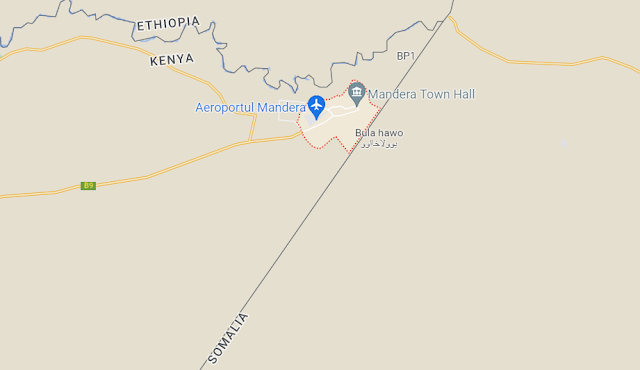..
BBC broadcaster in ‘death to Israel’ rant
Regular BBC Arabic contributor Mayssaa Abdul Khalek also called on Arab states
to attack Israel on Twitter
David Rose
JANUARY 19, 2023 10:00
BBC
A journalist hired by the BBC has ranted “death to Israel” on social media and described it as “occupied Palestine” live on air, the JC can reveal.
Regular BBC Arabic contributor Mayssaa Abdul Khalek, a Lebanon-based reporter, also called on Arab states to attack Israel on Twitter, alongside links to her broadcasts for the corporation.
She was on Twitter and called on Arabs to attack Israel, or she called on Arabs to attack Israel on Twitter?
The disclosure comes despite a JC campaign which has revealed a catalogue of anti-Israel bias in BBC broadcasts and has led to the establishment of parliamentary inquiry due to start later this year.
In a live report, Ms Khalek, who describes herself as a “BBC Arabic co-host”, described a Hezbollah rocket attack on northern Israel as an attack on “occupied Palestine”.
Khalek's tweet in which she sends a ‘message to the Israeli enemy’
Three rockets had been launched against the Israeli border town of Metula, which she then called “an imperialist colony”.
The town is located at Israel’s northernmost point, inside the internationally-recognised 1967 border with Lebanon.
During the 2006 Lebanon war, the town’s population was forced to flee as it was bombarded by Hezbollah rockets.
During a live report in May 2021, Ms Khalek described how a Lebanese man had died, saying, “he and a group of youths were hit by RPGs that Israeli military shot at them during their attempt to cross the border fence in front of the imperialist colony of Metula”.
Without interruption by the presenter interviewing her, she went on:
“These events also come after three rockets were launched yesterday from South Lebanon towards occupied Palestine.”
She also used the phrase “occupied Palestinian territories” to describe Israel in a tweet linked to the same broadcast, which contravenes BBC guidelines. Last week, after she was contacted by the JC, the post was deleted.
Ms Khalek has used the social media account to publicise 30 broadcasts she has made for the BBC, alongside anti-Israeli material.
In March last year, she liked a tweet commemorating Diaa Hamarsheh, a terrorist who died in a gun battle after killing a rabbi, a policemen and three civilians in Bnei Brak, near Tel Aviv.
Then in November she described “the enemy, Israel” alongside photographs of a Palestinian rally and a teenager holding up a sweatshirt with the slogan “Freedom for Palestine”.
A December 2017 post under a photo of the late Israeli Prime Minister Golda Meir read: “The Arabs are in a deep slumber… Confronting Israel was limited to statements of denunciation that do not make us fat, do not satisfy our hunger, and do not restore our Jerusalem to us.”
A post on the Syrian war in February 2016 began with the phrase “Death to Israel”. It went on: “Is it your business to resist the Arab countries or Israel? Oh, sorry, Israel is an ally of your friend Russia, and they coordinate in the Syrian war.”
Last month, the JC revealed that the BBC had dropped the Palestinian pundit Abdel Bari Atwan who has defended numerous terrorist attacks, including the Munich massacre and the recent knife assault on author Sir Salman Rushdie. BBC Director-General Tim Davie had previously defended his contributions.
At the same time, Arabic channel staff were told they must abide by BBC guidelines on bias and that their output would be monitored. They were also informed that almost half the channel’s 150 jobs would go as part of BBC cost-cutting.
In September, media watchdog CAMERA Arabic, which later also translated the words used by Ms Khalek, disclosed that in a broadcast about Palestinian prisoner Nasser Abu Hmeid, who was suffering from cancer, BBC Arabic failed to mention that he had been convicted of the murder of seven Israelis.
At the time, a BBC spokesperson said that the correspondent “should have explained the background”. However, in late December, after his death, BBC Arabic again failed to mention Hmeid’s killings in an online report. Following a complaint by CAMERA, the BBC acknowledged the error again.
A BBC spokesperson said: “Mayassa Abdel Khalek is not a BBC News Arabic co-host or presenter. She is a contributor invited on occasion to talk about Lebanon.
“In a live and brief interview held May 14th 2021, when Ms Abdel Khalek delivered her analysis on rockets fired from Lebanon on May 13th 2021, she should have been challenged when she described Metulla as a ‘colony’.
"Further, when Ms Abdel Khalek commented on the intended target of the rockets, the presenter should have disputed her remark that they were headed to ‘occupied Palestine’. They were presumably launched towards northern Israel, which the BBC wouldn’t describe as ‘occupied Palestine’.
“We do not ban guests from appearing on the BBC. Careful judgements are made and will continue to be made about the guests we invite on and the context in which we hear from them.”
"Careful judgements", Sounds like it!
==========================================================================================
Woman killed, 8 wounded in al-Shabaab attack on PSV in Mandera
The rest of the passengers in the motor vehicle escaped with injuries.
A woman was Monday killed and eight others were injured after al-Shabaab militants attacked a public service vehicle plying the Banisa- Mandera road, Mandera County.
The vehicle had 12 occupants when the gunmen attacked it, police and survivors said.
Locals said the attackers opened fire between Sarman and Olla.
The rest of the passengers in the motor vehicle escaped with injuries.
Local officials said they have been sighting terrorists in the area planning to launch attacks.
The area is near the porous Kenya-Somalia border which is usually breached by terrorists.
Police said they suspect the attackers were targeting the four-wheel drive car.
On Sunday, January 15, the Somali-based Islamist terror group attempted to conduct a sectarian attack in Takaba by targeting another PSV vehicle but was baulked by the local Muslim community.
Witnesses said some of the passengers on board refused to cooperate with the attack on the vehicle forcing the attackers to flee.
Northeastern regional police boss George Seda said the attacker escaped soon after the incidents.
He said one victim who was injured in the Banisa incident was stable in the hospital.
There are fears of more attacks planned in the area amid heightened vigilance.
The border region has borne the brunt of repeated attacks from the militants who are at times aided by residents.
The terrorists at times plant explosives on the routes used by security agencies and attack them.
Somalia has not had a stable government after the fall of Siad Barre in 1991.
Somalia is a devout Muslim society, obviously incapable of governing itself.




No comments:
Post a Comment